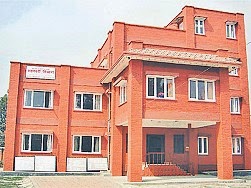KATHMANDU, APR 25 -
Despite a huge surge in the number of cooperatives across the country,
its regulatory framework has remained weak. Department of Cooperatives
(DEOC), the regulator, is short of human resources and, moreover, the
number of division cooperatives offices (DCOs) is shrinking.
There used to be 68 DCOs in 1992 while there were a mere 800
cooperatives in the country. However, the number of cooperatives has
crossed 29,000 whereas the DCOs is limited to just 38.
Around 13,000 savings and credit cooperatives and 4,000 multi-purpose
cooperatives have been licensed to carry out financial transactions.
They have collected more than Rs 120 billion deposits, investing over Rs
100 billion.
With a number of problematic cooperatives coming into surface, there is
an urgent need to strengthen the Cooperative Department and expand the
presence of DCOs across the country. Though the current budget mentions
about establishing additional DCOs in 20 districts, not a single office
has been established in the first nine months of the current fiscal
year. “The government hasn’t prioritised to strengthen the monitoring
agencies,” said Kedar Neupane, registrar at the DEOC.
The budget also states to form a separate authority to monitor the
cooperative sector, inviting the role of central bank for inspecting big
cooperatives. “Until such body is formed, the cooperatives having
transactions of more than Rs 500 million will be monitored by the DEoC
in assistance with the Nepal Rastra Bank,” states the budget.
The complaints received by the High Level Investigation Commission on
Cooperatives have shown serious concerns in the sector. The commission
has recieved complaints against 130 cooperatives that have embezzled
more than Rs 7 billion, with most of these cooperatives operating within
the Valley.
The DEoC officials said that there could possibly be more cooperatives
engaged in embezzling deposits of the general people. “A number of
cooperatives that are reported to be engaged in profit-oriented and
family run business have failed to catch the government’s eye for
supervision.”
Meanwhile, the DEoC blamed the police administration for not assisting
the department. “When it comes to troubled cooperatives and their
absconding chairmen, the police is reluctant to take action,” said a
DEoC official, citing the lack of a strong cooperative act as a possible
reason.
The government, now, is looking forward to pass various bills related to economy through the parliament.
However, concerned authorities have not shown interest to amend the
existing Cooperative Act in order to give more power to the regulator.
The high-level commission formed three years ago had recommended for the
amendment of the Cooperative Act but strong lobbying by the cooperative
association foiled the initiative.






No comments:
Post a Comment